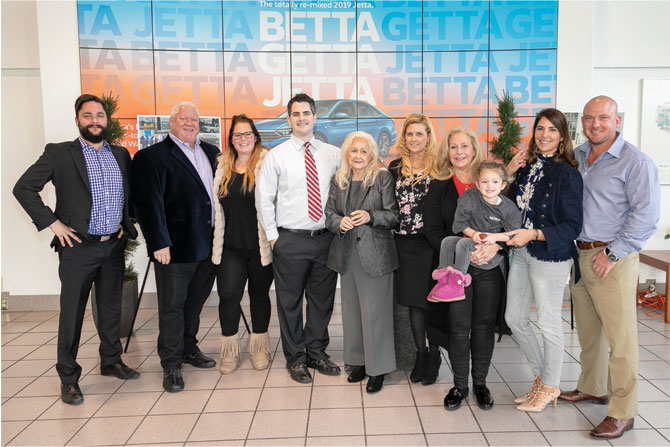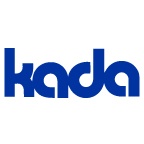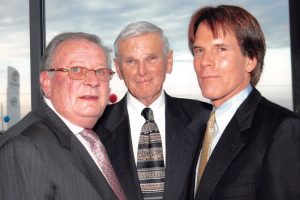By KADA
You come from a car family, and the automotive industry would have been the obvious career choice. Did you always aspire to be part of the automotive industry?
My degree was in communications. I wanted to work in the advertising field, and actually, I really wanted to be a travel agent and travel around the world. I had moved to Dallas for an entry-level job, and they were getting ready to promote me. My father was adamant about me not doing that, so he intervened. He knew that if I went any further, I would never come home. He wanted me to advertise for our company instead, so I went from working for an agency to working for the company.
Is your entire family in the auto industry?
- My daughter is not, but everybody else is.
- My nephew, Shane Huffman, is my partner.
- My brother Dow was a partner too, but he had a very rapid cancer and passed away unexpectedly a couple of months ago.
- My niece, Shannon, is our HR director.
- My son, Daniel Wolford, is our vendor manager. He manages facility sites.
- Another nephew, Kameron Huffman, is the general manager of our Nissan facility.
Describe your educational background. What did you study?
I went to the University of Kentucky and earned a degree in advertising. I started studying business, but I realized I was too creative. Advertising was a better choice for me.
When I moved back from Dallas, I started the advertising department of our business and did in-house marketing and advertising.
After 10 years, I retired to raise my family. I grew up in the era of women transferring their in-home work to out-of-home work. Working when you had small children was not quite acceptable. I went back for a business degree, but I had a 2-year-old and a 7-year-old. I am not a superwoman. I couldn’t complete it. Then my father passed away about 14 years ago. I came out of retirement and began working at the dealership.
By then, my children were old enough to be sustainable on their own. That part worked well. But the job was very difficult. We had several locations, and each location had a different philosophy and was run differently. My father had been the glue. Having different approaches wasn’t sustainable after he was gone.
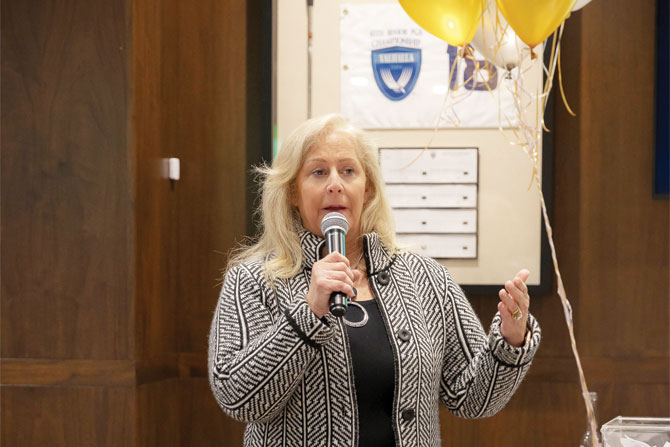
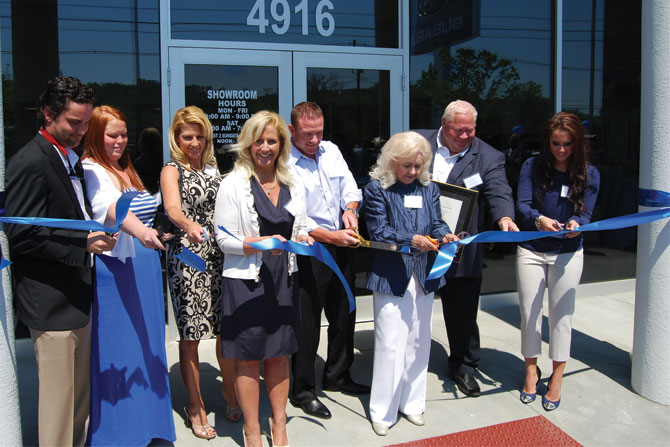
My background was marketing and writing, radio, TV — all that public part of it. I was suddenly taking care of the day-to-day corporate business portion. I had to go back to school with NADA in a yearlong program at the dealer academy. The dealer program brought everything together. It was a crash course in every aspect of running the dealership and every department, and listening to my peers gave me a lot of young, fruitful ideas. We brought in the right people, and I implemented the ideas I needed and wanted. That was the beginning.
I was a second-generation owner, but coming in with a new set of eyes, I approached everything the way a first-generation owner would do it. I didn’t have to do it the way it had always been done, but I also didn’t have the benefit of my dad’s advice. My brother had that benefit because he grew up in the business.
Part of what made it hard initially was that I had always been a sister and motherly influence to my brother. He knew I could get things done, but he didn’t want to give up the reins, especially because he had more experience. He was also old-fashioned. He wanted to take care of me even though I am older than he was. We would butt heads on things, and then we would compromise. We each had our position. My brother was the historian and knew why we did things; I was the innovator, always asking how we could change things. Then we brought my nephew into the mix. He is the enforcer and handles the day-to-day operations.
Since each dealership had unique facilities and a different philosophy, I suggested a management company to make them stronger by maintaining 60% of each dealership’s philosophy. We implemented it a couple of years ago. The HR director tells all stores to do things the same way. Employees now have the same pay and the same environment.
We had the old-school method of sales when my father died and I took over. We are now a work family, and everyone has the right to make suggestions. When we have meetings, I listen to employees, and I often tell them, “I can do this for you.” As a result, morale is unbelievably high.
I was relocating our Nissan facility to a new facility that had to be remodeled. As I was walking through, I asked where the service manager wanted things placed. He said, “You are letting me design this?” I told him I would have my input, but yes. You would have thought I gave him a million dollars. When he was done, it was the most efficiently laid out facility. He knew who needed to be where, the size of the product, and where everything was going to fit. He was constantly coming back and saying, “I have another idea.” That works for me.
I took the same approach for remodeling the service department. Rebuilding was based on the needs in the parts department to make it efficient. For example, we took advantage of the height above 6 feet and put it to work.
Why do you think there are so few other women in this business?
Traditionally speaking, dealerships have been a man’s world. There was a lot of work for men in high-pitched sales, as technicians, or in parts and the collision center. The woman’s job was behind the scenes in reception or bookkeeping.
In the last five years, I have seen women coming from other industries in sales and walking in saying, “I can handle this.” Some top producers are women who came from another industry. They are very capable and strong, they stand up for themselves, and they project an honest image. They don’t have to fight the stereotype of a used-car salesman. Customers receive them kindly because they tell customers what they know and don’t sell the old way. They handle themselves very well.
Do you think the industry needs to increase its efforts to employ more women?
Yes, and the industry is working on it. I see a noticeable change through NADA. Women are in the industry, and some women are high up in manufacturing. The majority of car buyers have been women for a while, and women are the decision-makers. If they can come into a dealership and say, “I’ve done my research,” especially to another woman, the transition to a sale is easy.

We need to continue making continuous progress. Although employing more women in this industry will take a while, someday it will be closer to equal than it is now. The big problem we have is that many women stop for family reasons. We’ve made work more flexible in the last couple of years, and I am beginning to see the results now.
You do need a very strong backbone to get into this industry. If you have confidence, I believe you will stand up for yourself, but you should also be protected. I do not allow anybody to be harassed or degraded.
Why is the automobile industry an excellent place for women?
The industry has had to make changes across the board because the younger workforce is not driven to work 12-hour days. People want to have a work-life balance, and we are willing to have some scheduling flexibility. For example, an employee could have an evening off and a morning off to spend time with their family. We can also give them the weekend off. Now that the work schedule has become more flexible, more women can have industry careers, including sales.
Are there any specific individuals who had a major impact on your career?
My father was a mechanical engineer, and he taught me honesty and integrity. He would look at problems and try to figure out how to solve them. Because of him, I learned to say, “You can have anything you can afford.”
I use my memory of him to direct me in how I treat employees and solve problems. If the computers are not working, for example, I ask myself the same question my father would have asked: “How are we going to solve this problem?” I also ask, “How could this be more efficient?” He showed me how to reverse problems and look at them from where I want to be instead of where I stand. The question is, “Who do I need where to get something completed?”
Working the process backward is also how we get through a lot of the deals. If someone doesn’t have enough money to buy a car, you can’t say, “Oh, just make more money.” You have to look at the person and think, “How would I do it?” When you back it up that way, you come up with ideas. It helps you find the loopholes you are missing.
Another important influence is a man my father worked with named Loyd Rawls. He doesn’t work for us. He owns his own company out of Orlando called the Rawls Group; his company does multilayered family succession finance, and he is still around. He can do just about everything you need to protect industry growth.
I called Loyd about 12 years ago and said, “I have all these ideas I want to implement.” He said, “Yes, we can do it.” He never told me “no.” Instead, he said, “Let’s think how we can get it done correctly.” We found ways to make all the ideas I had work for us. As a result, he has benefited our company’s growth, strength and succession plan. Almost every aspect of who we are now started with that conversation.
What is the most rewarding part of your career?
There are so many different things, but I love solving problems and helping other people solve problems. It’s fun to see someone else be ecstatic when they are successful.
I would have loved to be an engineer. I have worked on so many buildings and houses and structural things. The first question is always, “How am I going to do this?” I bought a corporate office back in the summer, hired an architect and laid out what I wanted. I even measured and counted file cabinets to ensure the office would meet the accounting department’s needs. When people moved in November 2020, I went to the comptroller and asked, “What do you need to make this more efficient?” She wanted a different style of cabinet. That was no problem; it made their life more efficient. That is what is beneficial in walking the department. You can say, “What do you need? Let me see if I can help you get it done.”
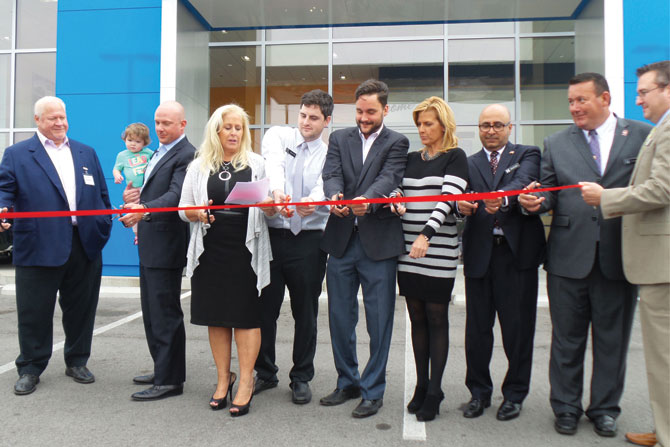
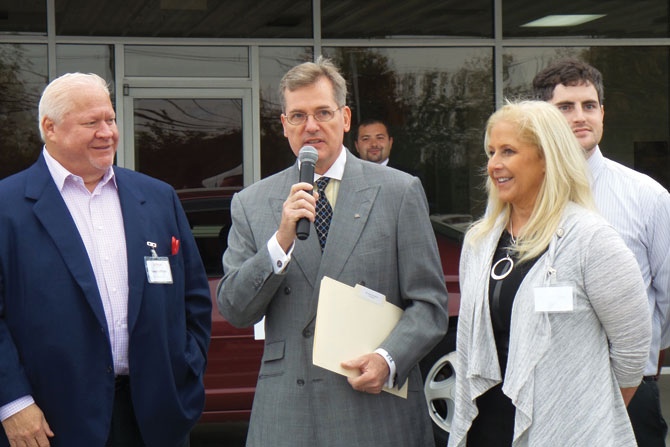
I brought my nephew into the business because I saw his potential and knew that he had the drive to do what I wanted. The best part is it worked out.
I did the same with his sister, who used to be a homicide detective. She is extremely intelligent, analytical, detailed and very educated. That is what was needed. I said, “I have a position I would like you to do, but it is going to take a lot of cleaning it up.” She took over the HR department and has just flown with it. When she does her typical background detective work on job applicants, sometimes she says, “Nah, this is not going to work for us.” She is such a benefit to the company.
What do you think will be some of the auto industry’s dominant trends in the next 5-10 years?
We will see a lot more business done the way it has been during the last year. More potential buyers will talk on the phone or use the computer. More EV cars will come in.
There’s also going to be a huge change in the work environment. A larger group of young employees are going to be back into that work-home-life balance.
Why is it important to be a KADA member? What makes it beneficial?
The Kentucky Auto Dealers Association works really hard to protect the dealers. We work on the legislative side to protect with incoming laws. We also work with manufacturers to make sure they don’t strongarm a dealer.
There are a lot of changes going on. To be a member means you are going to be protected with the behind-the-scenes activity. If we were not in place right now, dealers of different manufacturers would all be scrambling to figure out how to protect themselves. One side of the state would have a different way of doing business than the other side. We make sure everyone is represented well.
I am the very first woman to chair KADA. Each year, our chair has a purpose and a direction that they want to go. My behind-the-scenes purpose has been the same for many years: working with the legislature and manufacturers to protect dealer rights. Also, this year we are working to improve communication between 120 county clerks and dealers. The system has been the same for 50-60 years. We are working with the clerks to streamline work as it goes back and forth. We are always asking, “How can we be more efficient?”
What inspired you to serve as a leader within the association?
When I was asked to start about 10 years ago, I realized that it was a benefit to me because I could bring the information I was learning back to my corporation, and then I realized that maybe having a voice in what I wanted was going to help it come true.
You keep changing powers politically every year, but you can make it work for everyone if you are true to what you believe. We have a whole lot to give to our members. I think it will be just as strong for another 20 years.
Are you involved in any civic or charitable organizations?
I do many charity projects, but I keep it low-key. I work with the American Heart Association and the Red Cross, and I do a lot with my church, especially projects for children.
The auto industry is a huge contributor to our community. We do a really good job of giving back to the community. I can’t tell you how many times I’ve been someplace, like a school or medical building, and been told a specific manufacturer or dealer has donated money for it.
If you look back at your career and life, what would be three things that you have learned that you would pass on to a younger member within the auto industry?
The auto industry is also a very good industry for providing for your family, and it’s a lot of fun. I will never speak poorly of a competitor, and I won’t let my employees speak poorly of a competitor because my competitors are my friends. We work together on a lot of things. I have a lot of fun with them.
What are two things that you have learned from past experiences that are helping you navigate now?
To ask those who are in the business their opinion. Older employees have a history, and younger ones understand technology. Merging the two gives you the complete package.
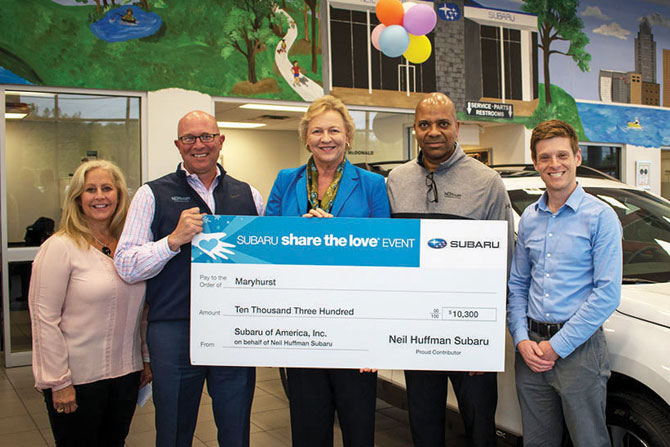
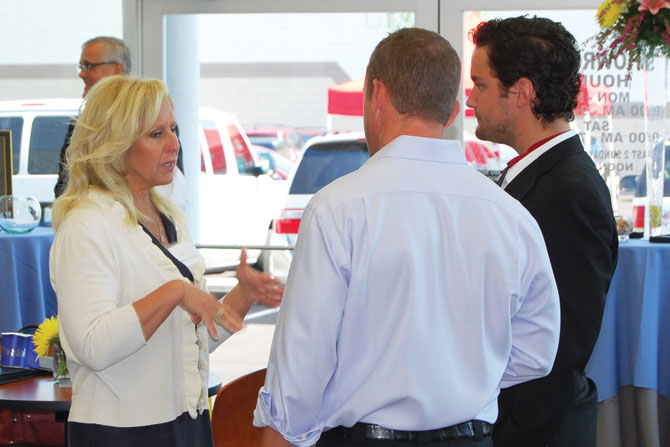
This industry is evolving rapidly, and I cannot see it going anywhere but in a positive area. Dealers collaborate and work together to solve the problems.
We have a great industry. You will find people who were attorneys, doctors, farmers or in the airline industry. Their collective experience makes the industry more versatile. Also, many really good people work hard at giving back to the community because they have been blessed. They have no problem with helping out.
How did you weather the pandemic storm?
Because I was on the board, I worked with the other members and our government. We asked, “What do you need? What do you consider essential?” Everyone was willing to do what they needed to stay open.
The first two months were horrendous and scary. Once we figured out we could sell, service and repair cars, we just changed our mindset, and it became easier. We will continue doing business with the same mindset in the future.
What is the takeaway for you from the pandemic that will guide your future business decisions as a small-business owner and leader?
Insert whatever the problem is, and the industry knows how to correct itself. Twenty years ago, we had an issue and had to figure out how to be more efficient and be a better servant to our employees and customers. When the market was hit in 2008, it was horrendous for everyone, but we knew what to do, and we figured it out.
Don’t disregard the historian. You need to know why things are the way they are before you can change them. We always have to check and correct our spending.
Describe your all-time favorite vehicle (it can be one you’ve owned or something on your wish list). What are you driving now?
My all-time best memory was my first car, a yellow Volkswagen Thing; it was the first one in Kentucky. That car was a metal box, and I loved it. Everybody knew where I was.
I love cars. In the summer, I drive a convertible; in the winter, an SUV. An Audi R8 is my favorite car of all time. I wanted to be a race car driver, and that car made me feel like I could have been. I can tell you how fun all kinds of cars are going to be.
The vehicle I drive now solves issues. I have an elderly mother, and she has to be able to get in or out.
Tell us about your family.
I am the monarch of the family. I am very much the mother figure, the conscience of everyone, and the one they call when they need somebody to talk to.
My son is married with three children, a son (7) and twin girls (3). He is the perfect father and husband, loves his family and is in the business in Louisville. My daughter (30) was married in April. She lives in Chicago, and she works in an international PR company. She will never be in the business, but she gives me all kinds of useful information. She does a lot of research and gives it to me.
My older brother has three children: Shane; his sister, Shannon; and another brother named Kameron. Their father has retired. He’s hilarious, eccentric, and knows a lot about a lot of weird things. He’s just funny. He will entertain you like there is no tomorrow. My mother (91) is hilarious, too. She is beautiful, articulate, very charismatic, and everything I always wish I could be like. She looks 75, and she just bought a new house. They are renovating it. “I’m sure I’ll be around another 10 years,” she told me. I said, “You better be.”
What is your favorite way to spend your free time? Any unusual hobbies?
Yes. I really do like remodeling houses. It’s not the design work I enjoy, like picking wallpaper. Instead, I think about how I can knock a wall down and make the house more efficient. It drives my husband crazy.
My husband is in the oil business. He works for Chevron, was born in Cuba and raised outside Chicago, and is an industrial engineer. He is absolutely the funniest, most easygoing individual you could ask for, but he used to drive me crazy. I kept thinking, I know how to do this, but he knows how to do it better than me. I totally respect him and couldn’t ask for a better soulmate.



